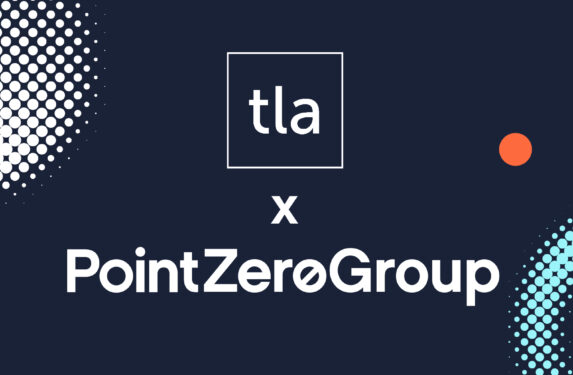
I always enjoy reading this report when it comes out every year, but it is a bit of a beast! For those unfamiliar with it, it’s based on Deloitte’s global survey of (and some interviews with) more than 11,000 business and HR leaders. If you don’t have the time or inclination to wade through the whole thing, here’s a little summary…
The overall message is that we’re seeing the rise of the social enterprise.
Their definition of this is “an organization whose mission combines revenue growth and profit-making with the need to respect and support its environment and stakeholder network. This includes listening to, investing in, and actively managing the trends that are shaping today’s world. It is an organization that shoulders its responsibility to be a good citizen (both inside and outside the organization), serving as a role model for its peers and promoting a high degree of collaboration at every level.”
And the three key themes are:
1. The power of the individual is growing
It turns out that 86% of millennials think business success should be measured in terms of more than just financial performance. And they’re now a majority of the workforce in many countries.
At the same time, around a third of organisations surveyed foresaw significant rises in the numbers of contractors and freelancers in the make-up of their workforces in 2020.
So what does this mean? Well, businesses increasingly need to look and think externally. They need to revamp their approaches to workforce management, rewards systems, and career models to better listen and respond.
Employees are asking for more personalised, agile, and holistic rewards, including more transparency on pay. And in a 21st-century career, the individual and his or her experiences take centre stage.
Leading organisations are recognising that they need to shift to a different model. One that empowers individuals to acquire valuable experiences and explore new roles. But we’re not there yet – there’s lots of room for improvement in this area.
2. Businesses are now expected to fill a wider leadership vacuum in society
People trust businesses more than government. Sad, but true. According to the 2018 Edelman Trust Barometer, 52% of us trust in businesses to ‘do what’s right’ as opposed to 48% in governments.
So, companies who are leading the way are those that address societal concerns. Such as longevity and well-being. 20% of this year’s respondents said that they’re partnering with older workers to develop new career models. And employers are increasingly investing in programmes that tackle physical, mental, financial and spiritual health. But, there’s still a big gap between what employees value and what companies are delivering.
Corporate citizenship and social impact now sit within the core of organisational identity. Engagement on diversity, gender pay equity, income inequality, immigration, and climate change can lift financial performance and brand value. Failure to engage can destroy reputations. But many are still catching up: while 77% of respondents said that citizenship was important, only 18% said this issue was a top priority.
3. Technological change is creating new opportunities, by enabling sustainable and inclusive growth
The good news is that 87% of C-suite execs say that Industry 4.0 (the digital industrial revolution) will lead to more equality and stability.
They’re looking to capitalise on the benefits of a surge of new AI-based software, robotics, workplace connectivity tools, and people data applications. These tools can help to redesign work architecture, lift productivity, and enhance human efforts – but we need to apply with care.
The skills of the future aren’t technological ones. They focus on human qualities needed to reconstruct work and retrain people. Respondents predicted tremendous future demand for skills such as complex problem-solving (63%), cognitive abilities (55%), and social skills (52%). Because the greatest opportunity is not just to redesign jobs or automate routine work, but to fundamentally re-think how we work, for everyone’s benefit.
Like the outside world, organisations are becoming hyper-connected. New communications tools are rapidly entering the workplace. 70% of respondents believe workers will spend more time on collaboration platforms in the future and 67% see growth in “work-based social media”. However, it remains to be seen whether these will actually lead to an increase in performance, effective collaboration and productivity.
And finally, we need to talk about personal data. While it’s creating rich opportunities for HR and the business, there is a fear around the risks it’s generating. Organisations must develop well-defined policies, security safeguards, transparency measures, and ongoing communication around the use of people data. Or they risk a backlash from employees, customers, and society as a whole.
 How to make your EVP work harder 6 Mar For many organisations, their EVPs & Employer Brands are associated with recruitment and resourcing. But during these uncertain economic times, we think the role of […]
How to make your EVP work harder 6 Mar For many organisations, their EVPs & Employer Brands are associated with recruitment and resourcing. But during these uncertain economic times, we think the role of […] Bristol agency BrandPointZero to merge with That Little Agency to create larger full-service employer brand marketing agency 4 Jan Bristol-based employer brand agency BrandPointZero has announced a merger with fellow Bristol agency That Little Agency, a move that will significantly increase the PointZero Group’s […]
Bristol agency BrandPointZero to merge with That Little Agency to create larger full-service employer brand marketing agency 4 Jan Bristol-based employer brand agency BrandPointZero has announced a merger with fellow Bristol agency That Little Agency, a move that will significantly increase the PointZero Group’s […] Not ready for a 4-day week? There’s still plenty you can learn from the UK trial. 23 Mar We’ve been following the UK trial of a 4-day working week with interest here at BrandPointZero, because anything that impacts organisational culture and gives businesses […]
Not ready for a 4-day week? There’s still plenty you can learn from the UK trial. 23 Mar We’ve been following the UK trial of a 4-day working week with interest here at BrandPointZero, because anything that impacts organisational culture and gives businesses […]
